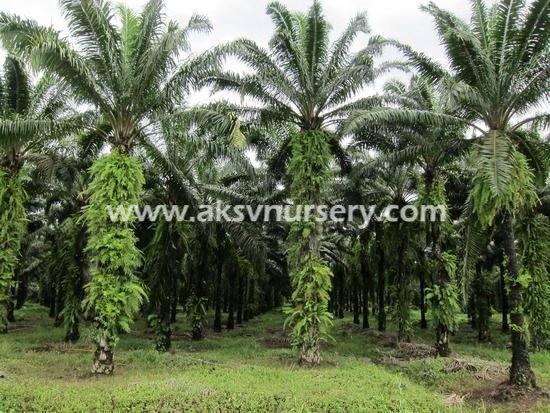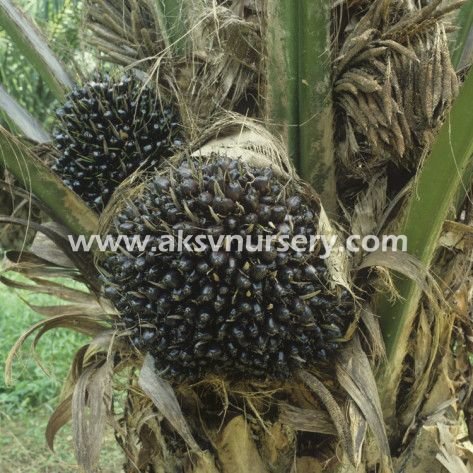Family: Arecaceae / Palmae
African Oil Palm, Jacquin
Origin: Africa
Cultivated for oil from the fruits. The fruit grows in bunches and consists essentially of a soft outer skin, which is reddish orange when ripe, and a fibrous layer covering the nut, composed of a shell and a kernel containing the palm oil. The fruit yields two kinds of oil: palm oil from the fleshy covering and palm kernel oil from the nut. During the processing of palm fruits the first residue of empty bunches, 50 percent of the fresh fruit bunches is used as fuel in the oil-extraction plant. Then anther 20 percent of the fresh fruit bunches are processed in a mechanical press to obtain viscous crude oil. The nuts from 15 percent of the fresh fruit bunches are separated from the solid residue, or palm fibre, and sent to plants specializing in the extraction of palm kernel oil. Purification of the oil produces large amounts of sludge. The oil from the fleshy outer skin of the fruit is customarily included (at about a 5 percent level) in pig and poultry rations as a source of vitamins A and D and to reduce dustiness in the feed.














